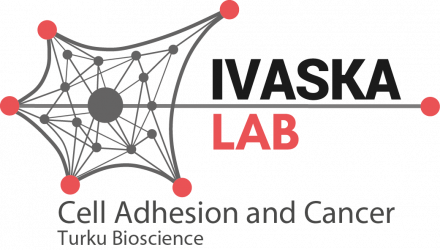Integrin signaling and mechanotransduction in regulation of somatic stem cells by Aleksi Isomursu et al.
Exp Cell Res. 2019 May 15;378(2):217-225. doi: 10.1016/j.yexcr.2019.01.027. Epub 2019 Feb 25.
ABSTRACT
Somatic stem cells are characterized by their capacity for self-renewal and differentiation, making them integral for normal tissue homeostasis. Different stem cell functions are strongly affected by the specialized microenvironment surrounding the cells. Consisting of soluble signaling factors, extracellular matrix (ECM) ligands and other cells, but also biomechanical cues such as the viscoelasticity and topography of the ECM, these factors are collectively known as the niche. Cell-ECM interactions are mediated largely by integrins, a class of heterodimeric cell adhesion molecules. Integrins bind their ligands in the extracellular space and associate with the cytoskeleton inside the cell, forming a direct mechanical link between the cells and their surroundings. Indeed, recent findings have highlighted the importance of integrins in translating biophysical cues into changes in cell signaling and function, a multistep process known as mechanotransduction. The mechanical properties of the stem cell niche are important, yet the underlying molecular details of integrin-mediated mechanotransduction in stem cells, especially the roles of the different integrin heterodimers, remain elusive. Here, we introduce the reader to the concept of integrin-mediated mechanotransduction, summarize current knowledge on the role of integrin signaling and mechanotransduction in regulation of somatic stem cell functions, and discuss open questions in the field.
PMID:30817927 | DOI:10.1016/j.yexcr.2019.01.027
